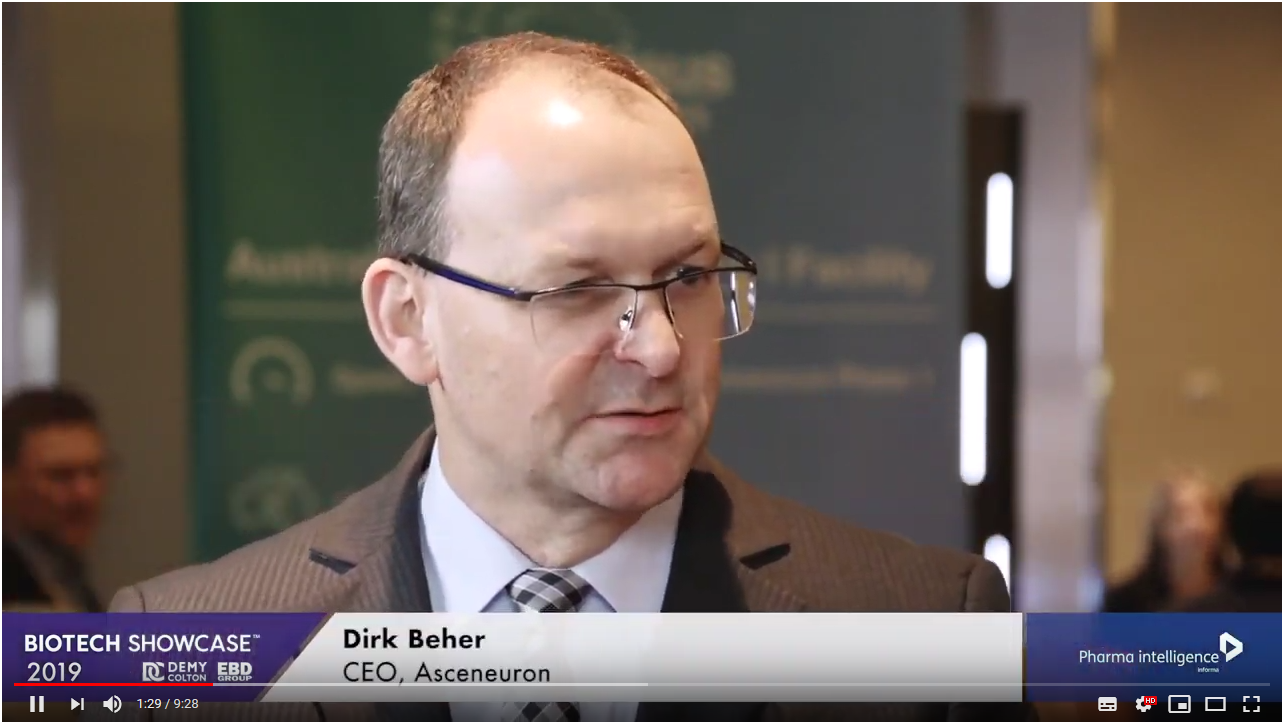Asceneuron appoints Peter Van Vlasselaer as Chairman

Asceneuron appoints Peter Van Vlasselaer as Chairman
- Serial biotech entrepreneur joins leading small molecule tau modulation company
Lausanne, SWITZERLAND and Cambridge, MA, USA, January 17, 2019 – Asceneuron, an emerging leader in the development of orally bioavailable modulators of tau pathology for the treatment of neurodegenerative diseases, today announces the appointment of Peter Van Vlasselaer as Chair of the Board of Directors.
Peter Van Vlasselaer, PhD has over 20 years executive and entrepreneurial experience in the biotech industry. He was most recently the Founder, President and Chief Executive Officer of ARMO Biosciences, Inc. which shortly after its public offering (Nasdaq: ARMO) was acquired by Eli Lilly. Prior to this, he was President and Chief Executive Officer of iPierian (acquired by BMS), ARRESTO (acquired by Gilead) and AVIDIA (acquired by AMGEN). In addition to founding ARMO, Dr. Van Vlasselaer was the founder of ARRESTO, co-founder of TrueNorth (acquired by Bioverativ) and was a member of the start-up teams of InterMune (ITMN) and Dendreon (DNDN). He currently serves on the boards of BLADE Therapeutics, Comet Therapeutics and RGENIX. Dr. Van Vlasselaer has a degree in Zoology and a PhD in Immunology from the Catholic University of Leuven, Belgium. He was a Post-Doctoral Fellow in the Division of Immunology and Rheumatology at Stanford University Medical School and DNAX Research Institute. Dr. Van Vlasselaer has authored several peer reviewed scientific publications and book chapters and he is an inventor on multiple patents.
Dirk Beher, Chief Executive Officer and Founder of Asceneuron, commented: “We are delighted to welcome Peter Van Vlasselaer to the Board. His extensive experience in all aspects of biotechnology, drug and corporate development will be invaluable as the Company progresses its orally-bioavailable tau modifiers through clinical development. With Peter’s addition to the board, our expanded US presence, and commitment to tau, Asceneuron is well positioned to revolutionize the treatment of neurodegenerative diseases.”
Peter Van Vlasselaer, new Chairman of Asceneuron, added:
“There is a strong industry and scientific interest in tau approaches to Alzheimer’s disease and orphan tauopathies such as progressive supranuclear palsy (PSP). I believe Asceneuron’s technology represents a significant opportunity in the next generation of drugs that could potentially transform the treatment of PSP and other tau-related neurodegenerative diseases. These disorders have devastating outcomes for patients and their families. I look forward to maximising the potential of these innovative new treatments and support the Company through this important phase of growth.”
Asceneuron’s lead program ASN120290 is a small molecule inhibitor of the enzyme O-GlcNAcase. Based on its unique mechanism of action, ASN120290 has the potential to become a first in class treatment for progressive supranuclear palsy (PSP) and other tau-related dementias.
The company recently announced the appointment of CNS specialist Dr Thomas C. Wessel as Chief Medical Officer. A clinical trial is ongoing with ASN120290 to quantify target engagement in the human brain using positron emission tomography (PET) the results of which will guide dose selection for an efficacy trial in PSP planned for later this year.
Posted :



